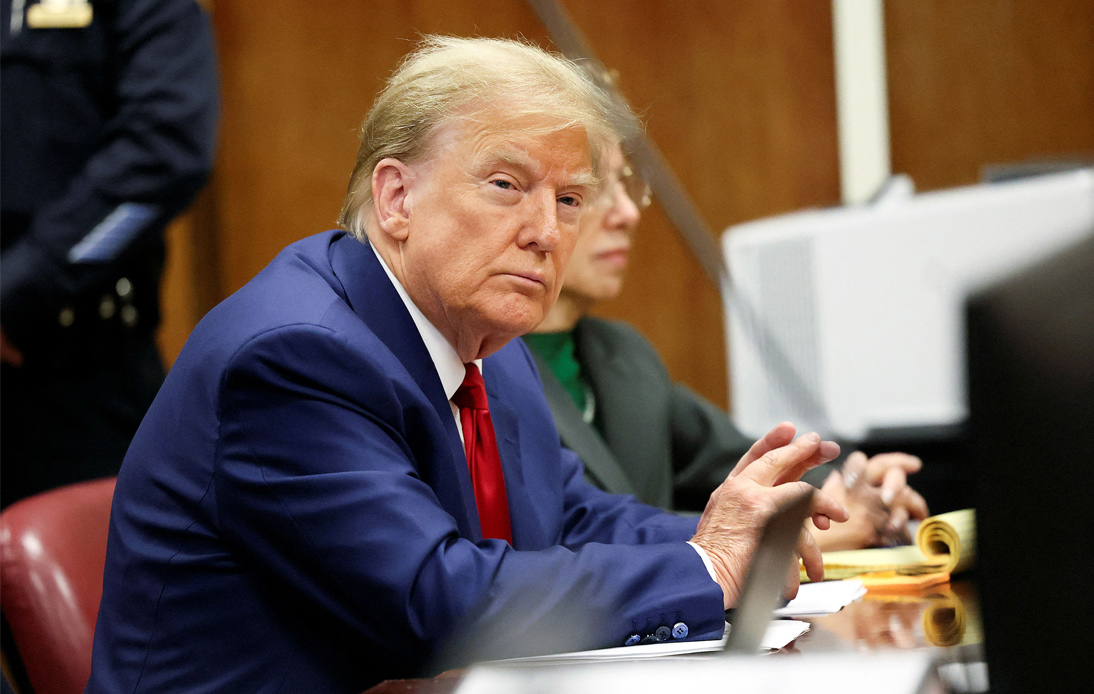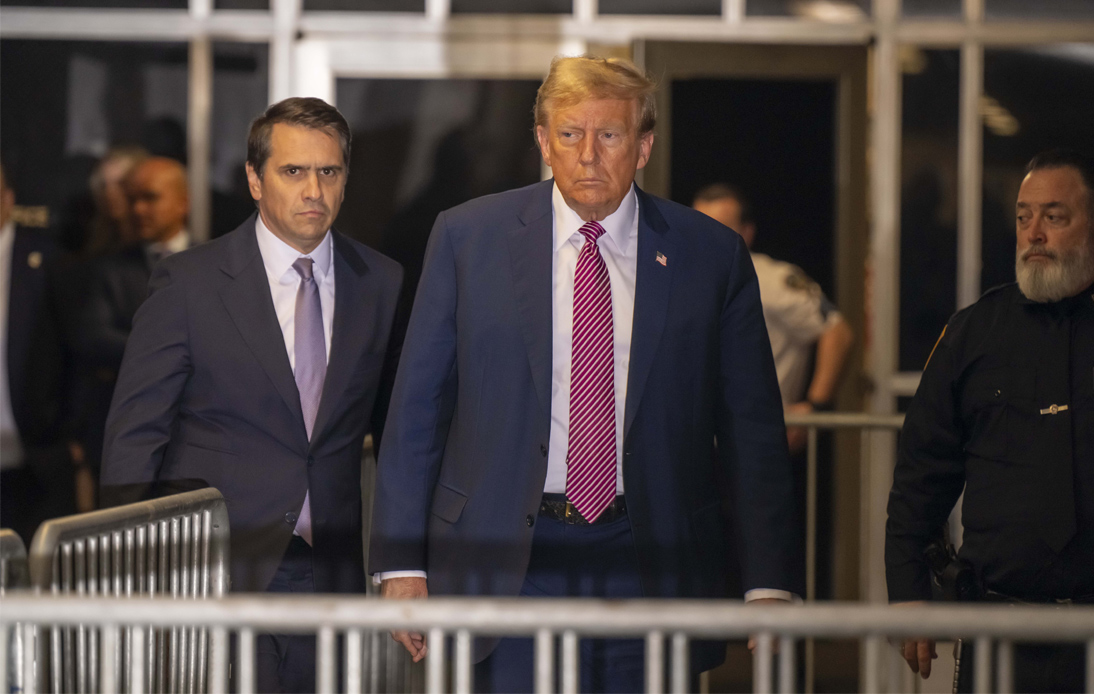
The prosecution in Donald Trump’s hush-money trial has leveled accusations of criminal conspiracy and cover-up against the former president, alleging that these were to conceal a sex scandal before the 2016 presidential election.
“It was election fraud, pure and simple,” declared a lawyer to the jury during the opening statements on Monday at the historic trial in New York.
In defense, Mr. Trump’s attorney argued that his client had not committed any crimes and emphasized that influencing an election was not illegal. “He is cloaked in innocence,” he said.
Mr. Trump faces accusations related to an attempt to conceal a $130,000 payment to porn star Stormy Daniels prior to his successful 2016 White House campaign.
He has pleaded not guilty to 34 charges of falsifying business records and denies any alleged sexual encounter with Ms. Daniels, whose real name is Stephanie Clifford.
The trial, marking the first for a former US president, began its second week in Manhattan, setting the stage for both sides to present their cases to the jury. The first witness, tabloid publisher David Pecker, testified briefly and is set to continue on Tuesday.
Prosecutor Matthew Colangelo presented in court that Michael Cohen, Mr. Trump’s former lawyer and confidant, conspired with Allen Weisselberg, CFO of the Trump Organization, to falsify records under Mr. Trump’s direction.
The prosecution claims that the arrangement to disguise Cohen’s reimbursement for the payment to Ms. Daniels involved falsifying invoices, ledger entries, and checks.
In his business records, Mr. Trump described these payments as “for legal services pursuant to a retainer agreement” with Mr. Cohen, Mr. Colangelo told the jury. “Those were lies,” asserted the prosecutor.
The prosecution emphasized that Mr. Trump’s motive for the payoff was to prevent voters from discovering his alleged encounter with Ms. Daniels.
The alleged cover-up was framed by the prosecutors as election interference, elevating the charge of falsifying business records to a more severe felony.
They argued that the notorious Access Hollywood tape, which emerged weeks before the 2016 election displaying Mr. Trump boasting about his ability to have sex with anyone due to his fame, had caused panic within his campaign.
“The defendant and his campaign staff were deeply concerned that it would irreparably damage his standing with female voters in particular,” Mr. Colangelo told the court.
The situation worsened when Ms. Daniels alleged a sexual encounter with Mr. Trump the following day, Mr. Colangelo argued.
The public revelation “would have been devastating to his campaign, so at Trump’s direction, Cohen negotiated a deal,” Mr. Colangelo told the jurors.
He alleged that discussions on how to maintain secrecy were held between Mr. Pecker, former head of American Media Inc., which owns the National Enquirer, and Mr. Cohen. The defense offered a simpler rebuttal.
Mr. Blanche aimed to portray the prosecution’s key witness, Cohen, as an untrustworthy former employee who bore a grudge against the former president.
“He’s a convicted felon and a convicted perjurer—he’s an admitted liar,” Mr. Blanche highlighted about Cohen.
He also scrutinized Ms. Daniels, who he claimed had made “hundreds of thousands” of dollars from her allegations. He advised the jury to view her testimony skeptically.
Further, he dismissed the supposed false records as merely “34 pieces of paper” that didn’t directly implicate his client.
Regarding the election interference allegations, Mr. Blanche refuted any illegal activity by his client, even in efforts to sway voters.
“There’s nothing wrong with trying to influence an election,” Mr. Blanche remarked. “It’s called democracy.”
The trial is anticipated to continue for about six more weeks, with legal experts noting the importance of opening statements in shaping the jurors’ perspectives on the case.
Mr. Rahmani observed that prosecuting this case as election interference could be challenging given a jury that includes two lawyers.





















